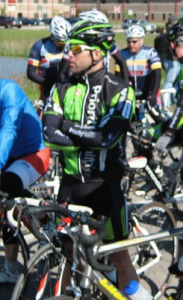In my last blog I spoke about 5 things that you need to get done ASAP, that is, very early in the beginning of your new season (i.e. the off season). These 5 things are very important for determining how to best go about training for the coming race season. The answer to those 5 questions will help you decide how many hours to train per week and what to spend those hours focused on. In other words, those answers will help you build an annual training plan. Simple! Or maybe kinda easy? Or ummmmm, what do I do next?
Building a plan can be easy but it takes time and some understanding of periodization, which I will discuss in a minute. First here are a few things to keep in mind when thinking about planning:
1) Best to work backwards from your first “A”(Important) race. Then work back to the next big race, and so on.
2) The longer you have been training and the more advanced of an athlete you are, the more important the plan. If you are a beginner, any plan will work to some degree as long as you do not over train.
3) Recovery is EXTREMELY important! In general you should build in recovery days every week and recovery weeks every 3-5 weeks. If you are a beginner I recommend at least 1-2 recovery days per week and a recovery week every 3-4 weeks. If you are advanced there are better ways to plan your recovery. I will discuss this in depth in another blog.
4) Have a plan and follow it! BUT, all plans need to be flexible to account for LIFE. The plan will change throughout the season.
5) Build your plan with some structure. Any plan is better than no plan, but with some structure your plan can take you a lot further. This “structure” is Periodization!
What the hell is Periodization? The word is used a lot and I’m sure many of you have read something, somewhere about it. It ends up meaning slightly different things to different people. Here are some concepts that I feel Periodization encompasses:
1) A systematic approach to training
2) Training with varied volumes and intensities
3) Training in blocks of time, with each block having specific purpose
4) Training with a purpose to arrive at your “A” race in the best possible condition to reach your race goals
I think number 4 is the best summarization.
Check out Joe Friel’s training bible books for help building the details of your plan or better yet, sign up for the Athletic Mentors Build Your Own Training Plan CLINIC. This is a very cost effective way to get some coaching help while putting your plan together.
In my next blog I’ll talk about some different approaches to developing periodized training plans and give you some ideas on what to put into those training weeks to come.




 Our Hockey Site
Our Hockey Site Team AM
Team AM


